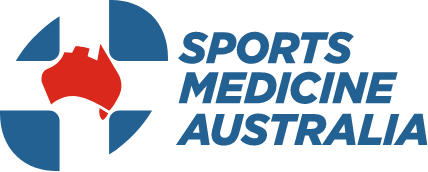One of the world’s leading sports medicine experts warns Australian sports medicine professionals, athletes and coaches about the dangers to athletes of expending more energy than they consume.
Up to 80% of athletes face a variety of serious medical conditions – including fatalities, reduced reproductive function, urinary incontinence and mental health issues – because they expend more energy than they take in from their food, a new report for the International Olympic Committee has found.
The report’s lead author Professor Margo Mountjoy travelled to Australia to deliver a keynote speech to more than 450 Australian sports health professionals at the ASICS Sports Medicine Australia Conference on the Sunshine Coast on 12 October 2023. Watch Margo’s interview with 7News Sunshine Coast here.
About 13 million adults and three million children take part in sport each year, according to the Australian Government’s Department of Health and Aged Care.
Professor Mountjoy outlined the key findings of the latest IOC consensus report into the syndrome known as Relative Energy Deficiency in Sport (REDs, pronounced reds).
She also discussed where responsibility for recognising and managing the syndrome lies.
Professor Mountjoy says the long list of risks to athletes of inadequate energy intake also include reduced immunity, impaired growth and development, reduced muscle function, impaired cardiovascular function, sleep disturbance and many other negative impacts.
Professor Mountjoy says: “The true prevalence of relative energy deficiency in sport (REDs) syndrome varies by sport and ranges from 15 per cent and 80 per cent.”
The new IOC report (2023 International Olympic Committee’s consensus statement on Relative Energy Deficiency in Sport (REDs) aims to alert athletes, their families, colleagues and coaches to the signs and symptoms of low energy availability and provide guidance towards solutions.
“Without informed guidance REDs syndrome can be hard to identify early and requires qualified sport-specific sports medicine professionals to diagnose and manage,” Professor Mountjoy said.
Sports Medicine Australia CEO Jamie Crain said:
“The research is clear: Over training can adversely affect an athlete’s health. Over training and not eating enough can be dangerous.
“The discussion over where responsibility lies for recognising and treating this destructive syndrome will be invaluable. Does responsibility lie with the coach, the individual athlete, or with parents?
“The REDs syndrome can have a destructive impact on the health and performance of any athlete taking part in any sporting code anywhere in the country, so Sports Medicine Australia was delighted to have Margo as a keynote speaker at our recent Conference.
“Margo’s keynote provided sports medicine professionals across Australia with access to the latest evidence-based research so they can better support athletes and their supporting team, such as coaches and parents.
“Properly matching energy intake to expenditure is vital for optimising performance. If in doubt, athletes and coaches should consult appropriately qualified sports medicine practitioners for advice.”
About Professor Margo Mountjoy:
Margo is a member of the IOC Working Groups in Mental Health in Athletes as well in the Prevention of Harassment and Abuse in Sport. She is Chair of the ASOIF Medical Consultative Group and a member of the IOC Medical Commission Games Group, and the WADA Foundation Board (Deputy). She is a member of the IGF Golf Medical Committee, the World Rugby Anti-Doping Advisory Committee as well as the FIFA Scientific Advisory Board. She is a former member of the Executive Board of FINA with the portfolio of sport medicine. She has collaborated on projects with the World Health Organization, unicef and various academic institutions around the world.
Key Facts:
- Millions of Australians who take part in sport face a variety of dangers because they expend more energy than they take in from their food.
- Issues include fatalities, reduced reproductive function, urinary incontinence and mental health issues and more.
- Up to 80 per cent of athletes are at risk, the latest research shows.
